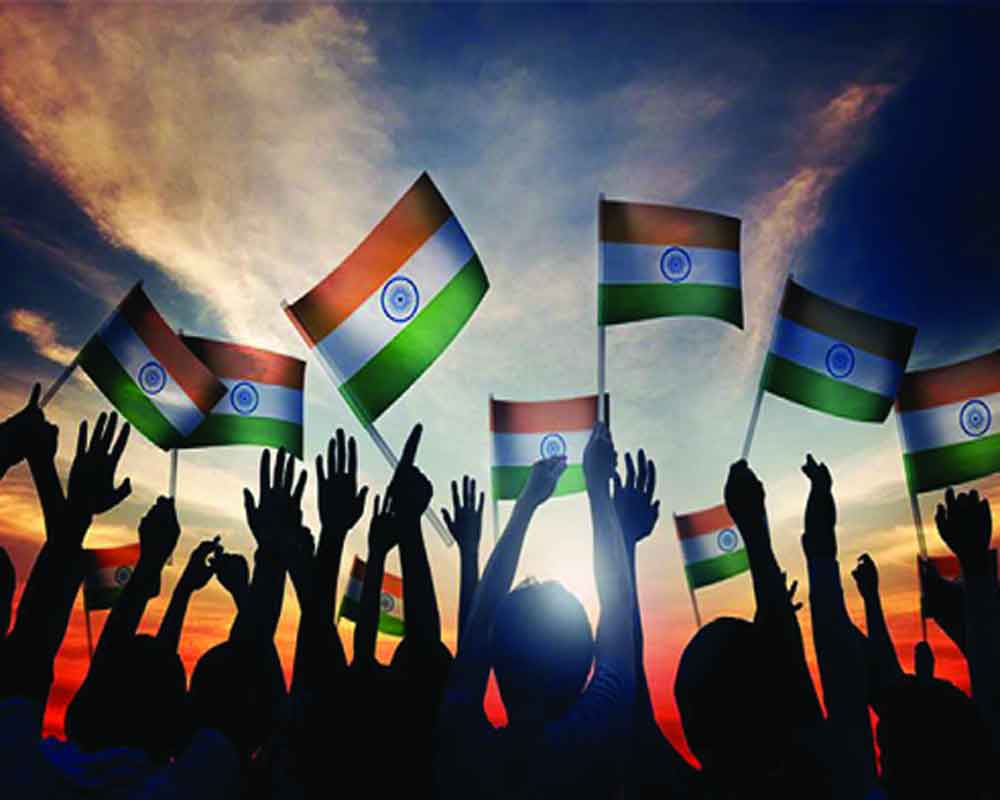The electoral arithmetic, rather than the principles of righteousness, often dictates the trajectory of political decisions
Last week, while flitting through the contents of a leading daily newspaper in India, an interesting article caught hold of my attention and it made a compulsive reading throughout. The article was captioned — ‘Since 2014, 25 Opposition leaders facing corruption probe crossed over to BJP, 23 of them got reprieve’. The article was, undoubtedly, a telltale commentary on the holes in the prevalent political system in our country. It was an embarrassing account of the glaringly apparent fact that political parties of all hues and shades are compelled to flow with the tides produced by the fault lines in our political system and that too sometimes for sheer political survival.
It may not be worthwhile to go deep into the finer nuances of the above account and be brazenly judgemental of hallowed political parties and personalities. It appears to be proper to dwell on the deficiencies of the current system in Bharat and regretfully State that the electoral arithmetic is the biggest bane of our political system. To build up the numbers for gathering the elusive majority, political parties, under a legal system that is speckled with loopholes, have to resort to such shenanigans to assemble numbers to make stable governments and even make strong governments that can govern smoothly.
Our democracy has definite deficiencies. Rather it is anything but perfect. A multi-party democracy is better described as a non-ideal, diluted form of democracy, especially so in a culturally variegated society like ours. The purest form of democracy is outlined in our ancient scripture Manusmriti. While making a mention of Manusmriti, it needs to be clarified that this observation is not to be taken lightly even if there is controversy associated with this ancient scripture. That controversy sprang from its distorted version, due to historical extrapolations by unscrupulous persons. The original, uncorrupted version of Manusmriti is a divine blueprint of an ideal governance system. The scripture talks of democracy indicating the following three characteristic features of democracy (prajatantra)
1. Partyless system of elections and governance
2. Right to recall the elected representatives by the voters
3. Congruous with the principles of righteousness or Dharma
It would also be relevant to State here that the above primaeval, divine scripture also provides a structural frame for the democratic governance system. It talks of three assemblies — Rajaryasabha (executive assembly), Vidyaryasabha (subject specialist assembly) and Dharmaryasabha (assembly of religious experts). The last-mentioned assembly or council is composed of persons of distinguished moral standing and impeccable character who act collectively as some kind of moral authority on the functioning of the executive council.
It is easy to see how far the existing polity and governance structure are away from the above-mentioned ideal polity and governance system in a democratic set-up. In a party less democratic polity, all problems of electoral arithmetic and the evils that they engender are bound to vanish. There are going to be no big election rallies, no stupendous spending on elections, no horse-trading, no party switching, no turncoats, no go slow on prosecuting the corrupt and criminal politicians and no silly concepts of majoritarianism or minorityism.
There is going to be no minority-centred governance. It is also not difficult to understand how many secondary evils of the extant political system in our country will get eliminated if we were to incorporate the tenets of the sacred scripture Manusmriti in our polity and governance. It may be farfetched to expect that we can carve out from the present system something exactly conforming to the above utopian structure but even if we incorporate therein one or two important features like party less democratic system in our country, great benefit can accrue to our governance.
In light of what is Stated above, we certainly need to reform our democratic system which does not deliver too well. Accordingly, we look forward to the expectedly third term Modi Government bringing about wide constitutional, electoral and bureaucratic reforms to enable our nation to progress by kangaroo leaps, which it is capable of. Bharat is divinely destined to become the leading global nation-State of the world while maintaining its pristine stature as the moral and spiritual trailblazer of the world. This is so because Bharat is the land of saints, sages and seers who have been the beacons for humanity through the course of its long and chequered historical existence on this planet.
(The author is a management consultant; views are personal)


























